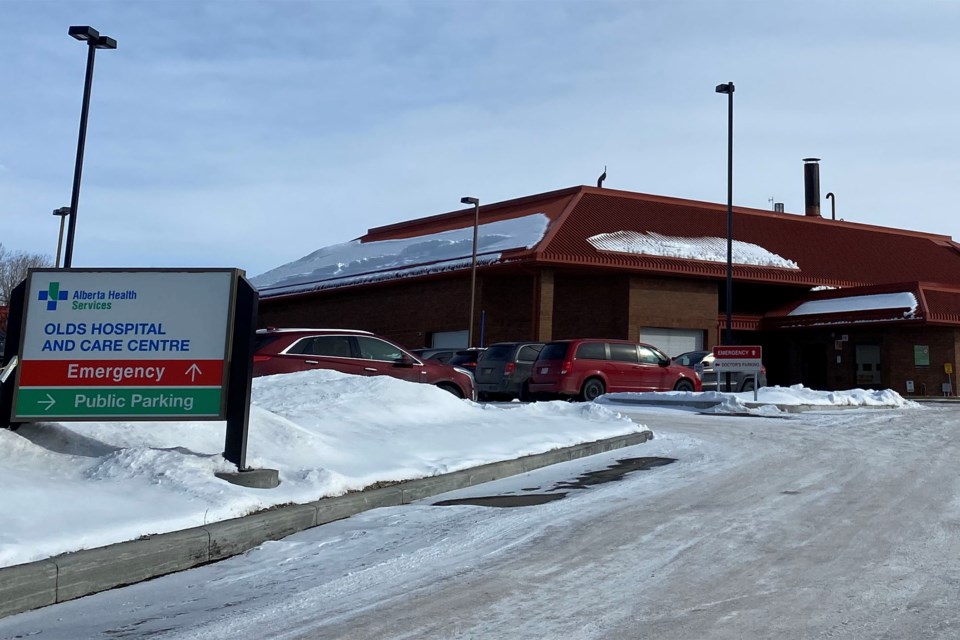A former member of the David Thompson Health Advisory Council is hopeful that the provincial government’s decision to replace the groups with regional advisory councils will improve responsiveness to concerns that she felt previously went unaddressed.
“These regional advisory councils that they are proposing are going to cover pretty much the same geographic area as we do right now with our David Thompson Health Advisory Council,” said Geraldine Greschner, a representative from Sundre and immediate past-chair whose second, three-year term was set to end this coming September.
“I don’t think the geographic area is really going to change,” Greschner told the Albertan.
However, she said one significant difference will be that instead of reporting to Alberta Health Services, the new regional advisory councils will deal more directly with the ministry of health and the minister.
“And I do think that that has been a concern through the years, that sometimes the concerns that were voiced by the various members didn’t go any further than our meeting (with AHS); it seemed like there was no action and there was no response,” she said, adding she shared that concern.
“I just kind of felt that sometimes, our voices didn’t go anywhere and I was trying to figure out if it was a really good use of my time.”
But she’s open to the possibility that the change might yet address those concerns.
“With this regional advisory council now, we’re supposed to be reporting directly to Alberta Health and kind of bypassing the AHS middle ground,” she said.
“I’m not sure if that’s a better conduit for things to go straight up the pipeline instead of kind of going one level and then hopefully going to another one.”
She’s also hopeful that the Indigenous council will further amplify the voices from those communities.
“They do tend to be underrepresented in the various other health advisory councils,” she said, adding the David Thompson Health Advisory Council’s boundaries included among other Indigenous communities places such as Maskwacis.
“But we’ve never had representation on the council,” she said.
Greschner was one of two representatives from the immediate area serving on the council, along with Janey Olson from Olds.
In April, the provincial government officially announced as part of its overall strategy to refocus health care its intent to create 12 regional advisory councils as well as one Indigenous advisory council to further support local decision-making and also heed regional advice.
The government said in a press release that those appointed to serve on the councils will represent a range of lived as well as professional experiences that will include not only everyday Albertans receiving health-care services but also health-care workers, community leaders and municipal representatives.
All of the councils will reportedly directly advise Alberta’s government and the new primary care, acute care, continuing care as well as mental health and addiction organizations on clinical, capital and workforce planning in their regions.
The development did not catch members of the outgoing health advisory councils by surprise, as Greschner said they had previously been informed to anticipate impending changes back in November when the government first announced plans to restructure health care.
“This falls under that mandate of refocusing the health system,” she said.
The outgoing David Thompson Health Advisory Council, which on May 2 held its last-ever meeting, had been around for the better part of 11 years, said Greschner.
And having already completed two, three-year terms back-to-back, Greschner said she was going to have to step down as an alumni regardless.
“You’re allowed to do six years,” she said. “But they’ve said that now with the formation of these new councils, that even if you are in that position you can re-apply for the new council.”
As of earlier this month, Greschner said she was still considering whether to re-submit an application. There was a first round of applications following the formalities at the David Thompson Health Advisory Council’s windup meeting, she said.
“And then they’re going to do another one, I believe, coming into the summer or into the fall for people who – like me – haven’t decided if they want to fill in an application at a later date,” she said.
“I’m really torn,” she said, adding the Sundre community had since the council was first instituted previously been well represented by past members including Gerald Ingeveld and Kim Walton.
But Greschner already has a full plate of commitments related to health-care advocacy in the community.
“I’ve got other busy roles,” she said, citing examples such as serving as the secretary for both the Sundre Hospital Futures Committee as well as the Sundre Health Professional Attraction and Retention Committee and the Sundre High School skills day coordinator.
However, Greschner expressed no regrets about serving the council, which she overall described both as a privilege and a positive experience despite being a bit of a roller coaster ride of adapting to the change from in-person to video-conference meetings throughout the COVID-19 pandemic and returning to face-to-face discussions before spending restrictions imposed by Alberta Health prompted a return to virtual meetings, she said.
Although she hasn’t yet decided whether to return, Greschner also has not outright dismissed the possibility.
“I’m not sure whether I’m going to continue on, but I’ve enjoyed what I’ve done,” she said.
Individuals interested in joining a regional advisory council or the Indigenous advisory council can apply online by Aug. 30 for possible appointment by the end of the year.



